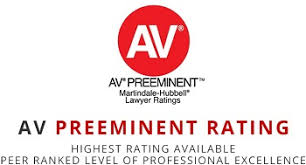Trust Administration
Peace Of Mind For Trustees And Beneficiaries
Here For You
We understand how you feel if you are here because a loved one has passed away. Please know we express our condolences to you if that is why you are at this page.
Trying to handle the technical details during a time of loss can be a challenge. We are here to help.
We want to help you through this process and take as much off your hands when it comes to locating assets, paying bills and making sure your loved one’s assets get to the right people without court or conflict.
If your loved one created a trust prior to their passing and all of his or her assets are in trust or named the trust properly as the beneficiary, then the good news is that we can begin the estate administration process completely outside of probate court.
Who Do We Help?
We work closely with the deceased’s family members, beneficiaries, and trusted advisors to ensure the deceased’s trust assets are inventoried, debts are paid and the assets are distributed to the named trust beneficiaries.
Depending on the type of trust involved, the assets may be distributed outright to the named beneficiaries, or the assets might be held in trust for the future benefit of the named beneficiaries.
Supporting You During A Difficult Time

Thank you for being here. I know you have a lot of options when it comes to choosing the right attorney for you. We are here to support you however we can during any time of burden or loss.
How Does Trust Administration Work?
Every trust has named a “trustee.” The trustee’s job is to ensure that trust assets are handled properly and the trust terms are complied with.
Serving as a trustee entails a huge level of responsibility and liability. We have seen many instances where the person named as trustee will have limited background or experience in carrying out the legal and financial duties that come with administering a trust.
That’s okay. As long as the trustee is aware the most careful course of action is to hire an attorney to help with trust administration, then the trustee can feel comfortable knowing the trust is being administered properly, all legal requirements are being satisfied and the trustee is minimizing or eliminating any personal liability related to the role of trustee to the extent possible.
During trust administration, we will evaluate title to and beneficiary designations of all of the deceased’s assets to identify which assets fall under trust administration and which assets might need to be probated. We will also coordinate appraisals of significant assets to get a clear picture of the deceased’s net worth for estate tax purposes.
What Are The Trustee’s Responsibilities?
Trustees are typically responsible for all of the following:
What Happens When Trust Administration Is Complete?
Once the trust assets are ready for distribution, the trustee will refer to the trust terms as to how assets will be distributed to the named beneficiaries or held for the benefit of the named beneficiaries in the trust.
Sometimes the trust terms dictate that assets may be distributed outright to the named beneficiaries, and other times the trust terms dictate that the assets should be held in trust for the benefit of the named beneficiaries.
It is very common, for example, for trust assets to continue to be held in trust for named beneficiaries if the beneficiaries are minors or young adults, have special needs, or might have creditor issues that would unnecessarily expose their trust inheritance to risk.
If the trust assets are to be distributed outright to named beneficiaries, then the trustee will prepare and sign the appropriate conveyance documents to the named beneficiaries.
This part of the process admittedly can be complicated and time consuming.
Plus, the trustee will likely want some sort of assurance that upon transferring trust assets to the named beneficiaries that the trustee does not remain open to future claims of wrongdoing or omission. That is where attorney guidance comes in to help you cover gaps you may not even know exist if you are navigating trust administration on your own.
Giving The Trustee Peace Of Mind
We are here to help you in your role as trustee so that you have the peace of mind you are performing your trustee duties as law the requires and that you are not exposed to undue risk or liability.
We will help you administer the trust as quickly and smoothly as possible.
And most importantly, we will help you communicate with the trust beneficiaries in a way that makes them feel an integral part of the process, not simply a bystander or a “nuisance.”
You would be surprised at how many litigious situations we have seen arise simply from the failure to communicate with beneficiaries. When we are guiding you in your duties as trustee, we will work hard to help minimize the risk of that happening to you.
Free Report
No Time For Mistakes
Learn The Six Major Mistakes Families Make When Choosing An Estate Planning Attorney ... And How To Make A Loving Choice For Your Family
Let me help you protect the people and things you love to make sure they stay out of court and out of conflict.
Enter your name and email address so we can send it to you. We love your privacy – we will never spam you.




Contact Us
Manikas PLC
4000 Legato Road
11th Floor
Fairfax, VA 22033
Serving Clients Throughout Virginia
© 2025 Personal Family Lawyer. All Rights Reserved. | Privacy Policy
DISCLAIMER: No information you obtain from this website or its content is legal advice, nor is it intended to be. You should consult an attorney for individualized advice regarding your own situation. No attorney-client relationship is intended or formed by your viewing this website or downloading and using the content, forms, tips or information kits found on this website. No attorney-client relationship is intended or formed without a fully-executed, written agreement to enter into such a relationship. Client testimonials or endorsements do not constitute a guarantee, warranty, or prediction regarding the outcome of your legal matter.
